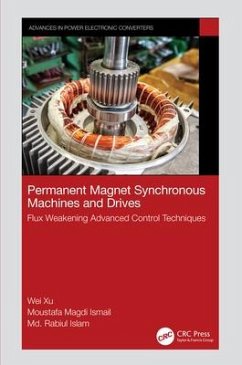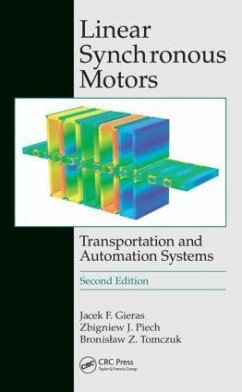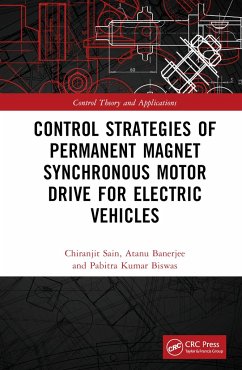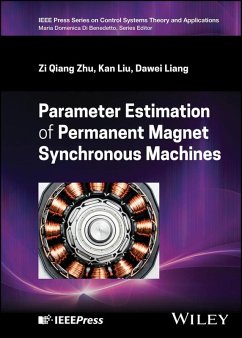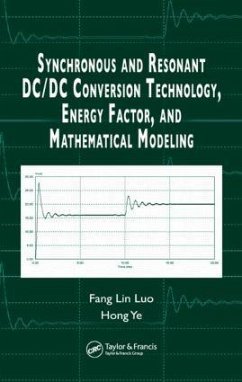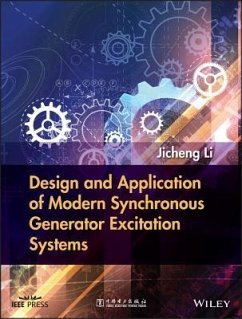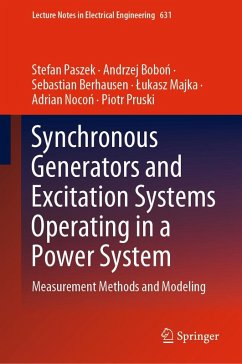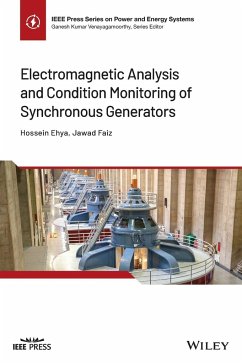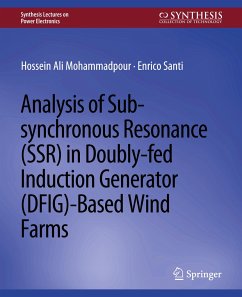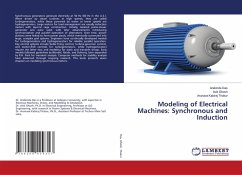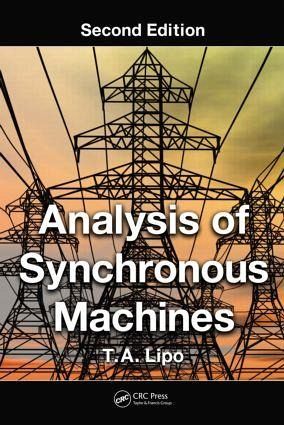
Analysis of Synchronous Machines
Versandkostenfrei!
Versandfertig in 1-2 Wochen
272,99 €
inkl. MwSt.
Weitere Ausgaben:

PAYBACK Punkte
136 °P sammeln!
Analysis of Synchronous Machines, Second Edition is a thoroughly modern treatment of an old subject. Courses generally teach about synchronous machines by introducing the steady-state per phase equivalent circuit without a clear, thorough presentation of the source of this circuit representation, which is a crucial aspect. Taking a different approach, this book provides a deeper understanding of complex electromechanical drives. Focusing on the terminal rather than on the internal characteristics of machines, the book begins with the general concept of winding functions, describing the placeme...
Analysis of Synchronous Machines, Second Edition is a thoroughly modern treatment of an old subject. Courses generally teach about synchronous machines by introducing the steady-state per phase equivalent circuit without a clear, thorough presentation of the source of this circuit representation, which is a crucial aspect. Taking a different approach, this book provides a deeper understanding of complex electromechanical drives. Focusing on the terminal rather than on the internal characteristics of machines, the book begins with the general concept of winding functions, describing the placement of any practical winding in the slots of the machine. This representation enables readers to clearly understand the calculation of all relevant self- and mutual inductances of the machine. It also helps them to more easily conceptualize the machine in a rotating system of coordinates, at which point they can clearly understand the origin of this important representation of the machine. Provides numerical examples Addresses Park's equations starting from winding functions Describes operation of a synchronous machine as an LCI motor drive Presents synchronous machine transient simulation, as well as voltage regulation Applying his experience from more than 30 years of teaching the subject at the University of Wisconsin, author T.A. Lipo presents the solution of the circuit both in classical form using phasor representation and also by introducing an approach that applies MathCAD®, which greatly simplifies and expands the average student's problem-solving capability. The remainder of the text describes how to deal with various types of transients-such as constant speed transients-as well as unbalanced operation and faults and small signal modeling for transient stability and dynamic stability. Finally, the author addresses large signal modeling using MATLAB®/Simulink®, for complete solution of the non-linear equations of the salient pole synchronous machine. A valuable tool for learning, this updated edition offers thoroughly revised content, adding new detail and better-quality figures.





